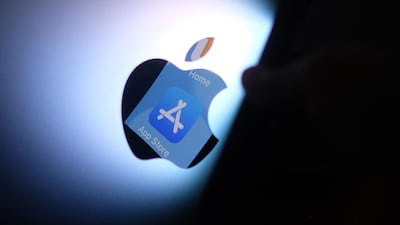Smaller developers on Apple's App Store have grown their revenue by 71 per cent since 2020, outpacing their larger counterparts, a new study has found.
More than 90 per cent of developers on the App Store were considered small in 2022, but almost 80 per cent were active on multiple storefronts, the independent study from Analysis Group showed.
Around 40 per cent of total app downloads from all small developers came from users outside of each developer’s home country, it said.
The figures show that these small developers, despite their size, are “proving resilient under challenging global economic conditions”, Boston-based Analysis Group said.
“Moreover, developers that monetise their apps by selling digital goods and services on multiple storefronts have earnings from users on more than 40 storefronts on average,” it said.
Overall, small developers in all major regions witnessed their revenue rise from 2020 to 2022, the study said. Those in Europe, for instance, posted an earnings increase of 64 per cent.
Country-wise, small developers in France enjoyed the highest jump in revenue, posting a 122 per cent rise, followed by the US (87 per cent) and South Korea (80 per cent), Analysis Group said.
The other top markets are China (59 per cent), the UK (58 per cent), Australia (43 per cent), Germany (37 per cent) and Japan (32 per cent).
“Like last year, the aggregate growth rate in earnings of small developers who were active in 2020 continues to exceed that of large developers,” Analysis Group said.
A developer is considered to be “small” if it had fewer than one million downloads and less than $1 million in earnings across all its apps in a given year, it said.
It also includes businesses that do not sell digital goods and services directly on the App Store, but excludes developers who never had more than 1,000 annual downloads.
The criteria is broader than those of the App Store Small Business Programme, launched in January 2021, which stipulates that developers who earned up to $1 million in the previous calendar year can qualify for a reduced commission rate of 15 per cent, compared to the standard 30 per cent.
While over half of all developers’ earnings in 2022 originated from games, the earnings of smaller developers came from apps across more diverse categories, it said.
Those categories included entertainment, social networks and health and fitness apps, with games accounting only for about a quarter of small developers’ earnings, it added.
“Developers of all sizes have built successful businesses while benefitting from the App Store’s global reach,” Apple said on its website. The App Store is available in 175 countries.
The global app market continues to grow, and app marketplaces have rolled out several initiatives to attract developers to help expand their digital offerings.
Apple began the app revolution when it launched App Store in 2008, and the number of third-party apps on the platform has grown significantly since then. From an initial 500, it has surged to more than 1.8 million, representing nearly 100 per cent of all apps, according to Apple.
While significantly below market leader Google Play in terms of the total number of apps — around 3.5 million, according to Statista — the App Store still leads in revenue as iPhone sales tend to be higher in countries with higher incomes.
The iPhone maker does not specify how much the App Store makes in its financial reports, even though it is part of its strong services segment.
The California-based company last week reported that its services revenue grew 5.5 per cent to $20.9 billion in its fiscal second quarter, making it its biggest growth segment.
In January, Apple said it about $920 billion has been paid to developers selling digital goods and services since the App Store's launch in 2008.
The platform welcomes more than 650 million visitors each week, “powering a robust global economy”, the company said.
“We believe that a culture where everybody belongs can drive innovation, and that we must stand up for the change we want to see in the world,” Eddy Cue, Apple’s senior vice president of services, said at the time.


